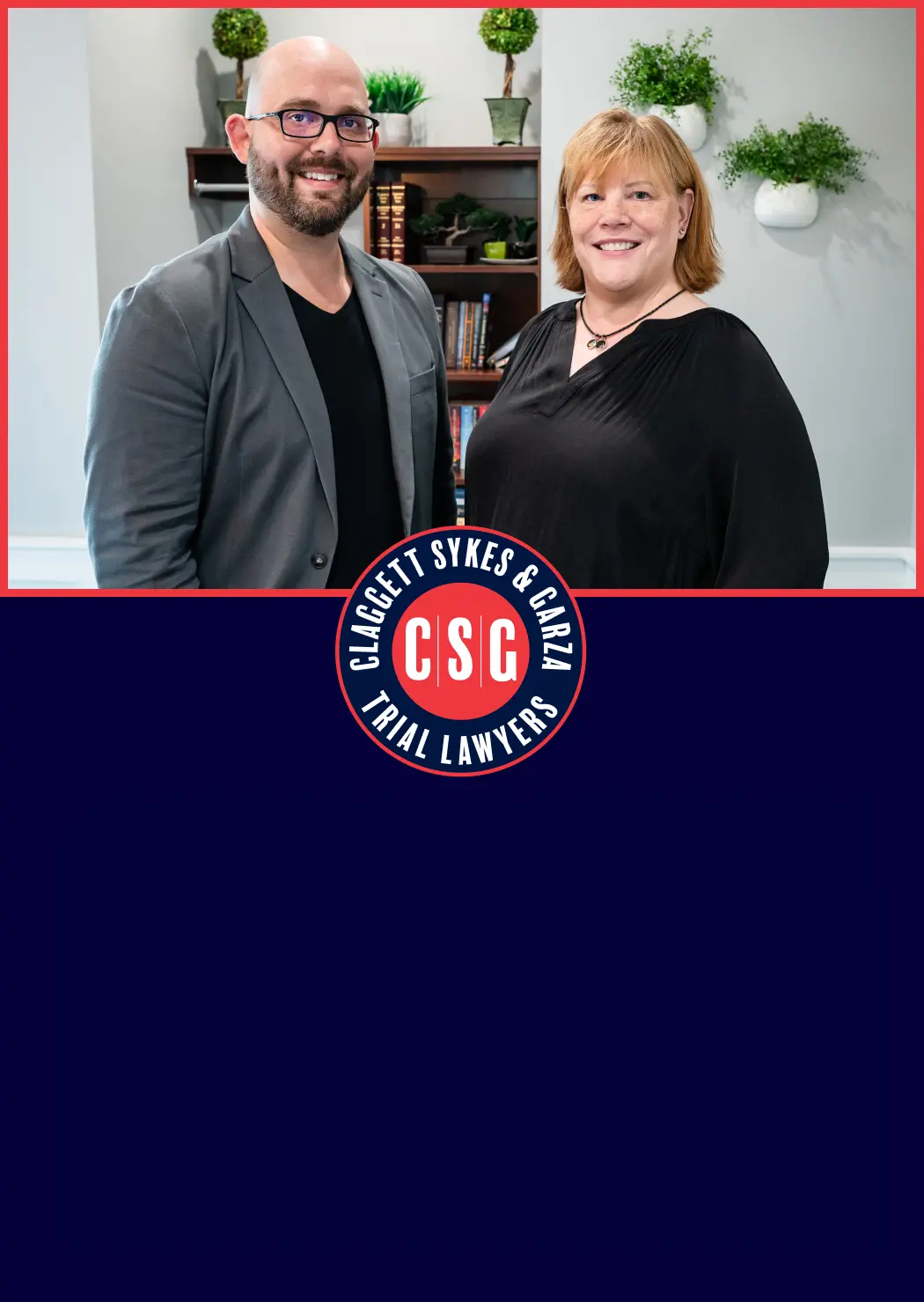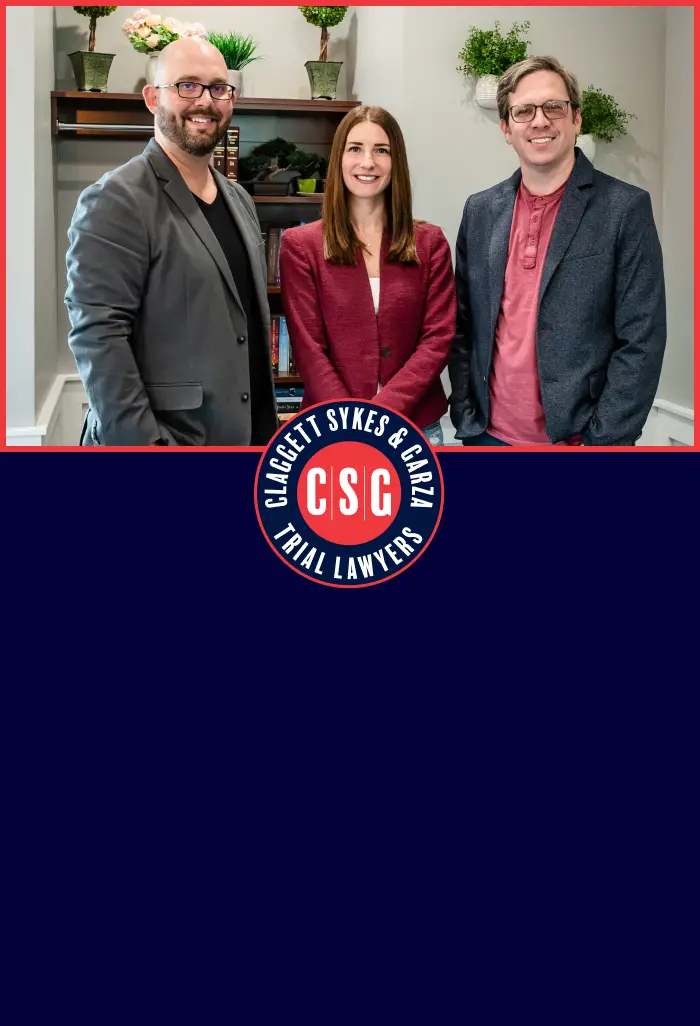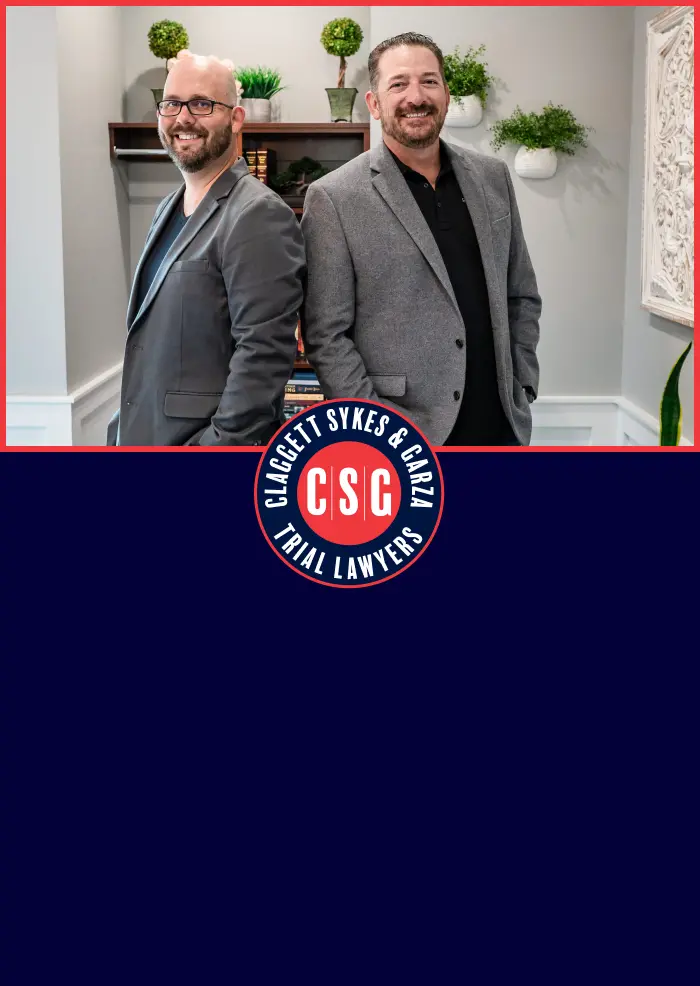Claggett, Sykes & Garza Trial Lawyers represents survivors of sexual abuse in religious institutions. Our experienced Connecticut sexual abuse in religious institutes lawyers have secured record-breaking verdicts, including the largest single-plaintiff sexual abuse verdict in history.
We provide confidential consultations and fight for justice against negligent religious organizations. We also work on a contingency fee basis, meaning you don’t pay anything unless and until you are awarded compensation. Contact us online or call Claggett, Sykes & Garza Trial Lawyers today at 860-471-8333.
Understanding Sexual Abuse in Religious Institutions
Sexual abuse in religious institutions represents a profound betrayal of trust that affects survivors throughout their lives. Religious organizations hold positions of moral authority and spiritual guidance, making abuse within these settings particularly devastating.
When religious leaders, staff members, or volunteers exploit their positions to harm children or vulnerable adults, the trauma extends beyond the physical and emotional damage to include spiritual wounds that can take years to heal.
Religious Sexual Abuse in Connecticut
Connecticut has witnessed numerous cases involving religious institutions across various denominations. These cases often involve complex power dynamics where religious authority figures use their positions to manipulate, groom, and abuse victims. The institutional nature of these crimes means that religious organizations may bear legal responsibility not only for the direct actions of abusers but also for their failure to protect congregants, inadequate supervision, and attempts to cover up abuse.
Religious institutions have a duty to maintain safe environments for all members, particularly children and vulnerable adults. When they fail in this responsibility through negligent hiring practices, inadequate background checks, or failure to report suspected abuse, they can be held accountable through civil litigation. Connecticut law recognizes that institutional liability extends beyond individual perpetrators to encompass the organizations that enabled or concealed abuse.

Get the Compensation You Deserve. Our Experienced Lawyers Can Help.
Types of Religious Institution Abuse Cases We Handle
Catholic Church and Clergy Abuse
Catholic Church abuse cases represent a significant portion of religious institution litigation in Connecticut. The state has three dioceses – Hartford, Bridgeport, and Norwich – all of which have faced numerous allegations and lawsuits. Our experienced trial attorneys handle cases involving priests, deacons, and other church personnel who have abused their positions of trust.
Connecticut’s Catholic dioceses have paid substantial settlements to survivors, with the Hartford Archdiocese alone paying $50.6 million to settle 142 lawsuits as of 2019. While some dioceses have established compensation programs, these often provide inadequate compensation compared to what survivors may recover through civil litigation. We help survivors understand their options and pursue maximum compensation for their suffering. Our experience includes cases involving historical abuse dating back decades, as Connecticut’s extended statute of limitations allows many survivors to seek justice.
Protestant Church Abuse Cases
Sexual abuse occurs across all religious denominations, and Protestant churches are not immune to these problems. We represent survivors of abuse in Baptist, Methodist, Presbyterian, Pentecostal, and other Protestant denominations. These cases often involve youth pastors, Sunday school teachers, camp counselors, and other church staff who had access to children and vulnerable adults.
Protestant church abuse cases can be complex because of varying organizational structures. Some churches operate independently, while others are part of larger denominational hierarchies. Our Connecticut sexual abuse attorneys understand these organizational differences and how they affect liability and potential recovery for survivors.
Religious School and Seminary Abuse
Religious educational institutions, including parochial schools and seminaries, have a heightened duty to protect students from abuse. These cases involve teachers, administrators, coaches, and other school personnel who exploit their positions to harm students. Connecticut’s religious schools must comply with general employment and safety standards, and failure to do so can result in significant liability.
Seminary abuse cases often involve adult students who are preparing for religious careers. These survivors may face unique challenges in coming forward due to concerns about their future in religious service. We provide confidential representation that protects survivors’ privacy while pursuing justice.
Youth Ministry and Camp Abuse
Religious youth programs and summer camps create environments where abuse can occur due to overnight stays, isolated locations, and close relationships between staff and participants. These programs often involve extensive one-on-one mentoring and activities that can provide opportunities for grooming and abuse.
Connecticut religious organizations that operate youth programs must comply with general employment laws regarding background checks and supervision. When these protections fail, resulting in abuse, the organizations can be held liable for their negligence.
Connecticut Laws Protecting Sexual Abuse Survivors
Statute of Limitations Extensions
Connecticut has enacted progressive legislation to help sexual abuse survivors seek justice. The state extended the statute of limitations for childhood sexual abuse cases with specific timeframes based on when the abuse occurred:
For abuse occurring before October 1, 2019: Survivors can file civil lawsuits until age 48
For abuse occurring after October 1, 2019: Survivors can file civil lawsuits until age 51
For cases involving convicted perpetrators: No statute of limitations applies for cases involving perpetrators convicted of first-degree sexual assault or first-degree aggravated sexual assault (effective 2022)
For adult victims: Three-year limitation period for victims who were over 21 at the time of abuse
These extensions recognize that many survivors do not come forward until years or decades after the abuse occurred. Connecticut also has provisions that allow previously time-barred cases to proceed under certain circumstances, reflecting growing understanding of trauma’s impact on survivors and the institutional nature of many abuse cases.
Confidential Filing Options
Connecticut courts recognize the sensitive nature of sexual abuse cases and provide options for confidential proceedings. Survivors can file lawsuits using pseudonyms like “John Doe” or “Jane Doe” to protect their privacy. This confidentiality extends to court documents and proceedings, allowing survivors to pursue justice without public exposure.
Under the Connecticut Practice Book, courts evaluate pseudonym requests based on “legitimate privacy concern” standards. Survivors must request pseudonym protection at the time of initial filing, and additional protections prevent discovery into a plaintiff’s sexual conduct with others. Our firm works closely with survivors to ensure their privacy preferences are respected throughout the legal process.
Civil vs. Criminal Cases
Civil lawsuits operate independently of criminal proceedings and serve different purposes. While criminal cases focus on the punishment of perpetrators and require proof “beyond a reasonable doubt,” civil cases aim to provide compensation for survivors and hold institutions accountable using the lower standard of “preponderance of the evidence.”
Survivors can pursue civil claims regardless of whether criminal charges were filed or resulted in convictions. Civil cases also can address institutional liability that criminal cases may not cover, allowing survivors to hold organizations accountable for negligent supervision, failure to protect, and systemic failures. Our trial lawyers help survivors understand these differences and develop comprehensive legal strategies that address all aspects of their cases.

Let Us Fight for Your Rights and Maximize Your Compensation.
How Religious Institutions Enable Abuse
Religious institutions can enable abuse through various forms of negligence and misconduct. Understanding these institutional failures is crucial for holding organizations accountable and preventing future abuse. Common patterns include transferring known abusers to new positions without disclosure, failing to conduct adequate background checks, and prioritizing institutional reputation over victim safety.
Many religious organizations have historically handled abuse allegations internally rather than reporting them to law enforcement. This approach often allows abusers to continue harming others while protecting the institution from public scrutiny. Many historical cases involved institutional coverups that enabled continued abuse, with documented patterns showing more than 130 priests credibly accused of child sexual abuse across Connecticut’s three dioceses, with systematic concealment dating back to the 1950s.
Inadequate supervision and training also contribute to institutional liability. Religious organizations must implement appropriate safeguarding policies, provide training on recognizing and preventing abuse, and maintain proper supervision of staff and volunteers who work with vulnerable populations. Failure to implement these protections can result in significant legal liability.

Experienced Personal Injury Lawyers Ready to Assist You.
Compensation Available for Survivors
Medical and Therapy Expenses
Sexual abuse survivors often require extensive medical treatment and psychological therapy to address trauma’s physical and emotional effects. Connecticut law allows survivors to recover compensation for all reasonable medical expenses related to their abuse, including past and future treatment costs.
Therapy expenses can be substantial, as many survivors require years of specialized treatment to address complex trauma. Our Connecticut personal injury attorneys work with medical experts to document the full scope of treatment needs and ensure survivors receive adequate compensation for their ongoing care requirements.
Lost Wages and Earning Capacity
Sexual abuse can significantly impact survivors’ ability to work and earn income throughout their lives. Trauma symptoms, including depression, anxiety, and post-traumatic stress disorder, can affect job performance, career advancement, and overall earning capacity. Connecticut law recognizes these economic impacts and allows survivors to recover compensation for lost wages and diminished earning capacity.
Our firm works with vocational experts and economists to calculate the full economic impact of abuse on survivors’ lives. This analysis considers not only immediate lost wages but also long-term career impacts and reduced earning potential over a survivor’s working lifetime.
Pain and Suffering Damages
Beyond economic losses, survivors can recover compensation for pain and suffering caused by sexual abuse. These damages recognize the profound emotional and psychological harm that abuse causes and the ongoing impact on survivors’ quality of life.
Connecticut courts have awarded substantial pain and suffering damages in sexual abuse cases, recognizing that no amount of money can truly compensate for the harm suffered. However, these awards can provide survivors with resources to rebuild their lives and access necessary treatment and support services. It’s important to note that Connecticut limits punitive damages to litigation costs and attorney fees only, which differs from some other jurisdictions.
Why Choose Claggett, Sykes & Garza for Your Case?
Claggett, Sykes & Garza Trial Lawyers brings unparalleled experience and results to Connecticut sexual abuse cases. Our firm has secured record-breaking verdicts, including a $485 million verdict that stands as the largest single-plaintiff sexual abuse verdict in history. We have also obtained multiple $100 million verdicts in sexual abuse cases, demonstrating our ability to achieve maximum compensation for survivors.
We Understand Privacy & Discretion
Our attorneys understand the sensitive nature of sexual abuse cases and provide compassionate, confidential representation. We recognize that coming forward takes tremendous courage, and we work to create a supportive environment where survivors feel safe sharing their experiences. Our “Big Hearts, Big Data, Big Justice” approach combines genuine empathy with sophisticated legal strategies and cutting-edge technology to build the strongest possible cases.
Contingency Fee Basis Means You Don’t Pay Until You Win
We operate on a contingency fee basis, meaning survivors pay no attorney fees unless we achieve a successful outcome. This approach ensures that financial concerns do not prevent survivors from accessing high-quality legal representation. Our firm has the resources to handle complex litigation against well-funded institutional defendants, including extensive discovery, expert witnesses, and trial preparation.
Legal Awards & Recognition
Our attorneys have received numerous awards and recognition for their excellence in trial advocacy and commitment to justice. Andrew Garza was named 2022 Trial Lawyer of the Year by the Keenan Trial Institute and 2023 Lawyer of the Year by New England Legal Awards. He has been recognized by Super Lawyers from 2016 to 2023 and named to Best Lawyers in America for Personal Injury Litigation – Plaintiffs in 2024.
Sean Claggett received Trial Lawyer of the Year recognition from the Nevada Justice Association in 2017 and maintains an AV Preeminent rating from Martindale-Hubbell. Both attorneys are members of the Multi-Million Dollar Advocates Forum, recognizing their success in obtaining multi-million dollar verdicts and settlements.
These awards reflect our firm’s commitment to excellence and our track record of achieving outstanding results for clients. Our national recognition in trial advocacy demonstrates our ability to handle the most complex and challenging cases.
Contact Claggett, Sykes & Garza Trial Lawyers Today
If you or a loved one suffered sexual abuse in a Connecticut religious institution, Claggett, Sykes & Garza Trial Lawyers is here to help. We provide free, confidential consultations to discuss your situation and explain your legal options. Our attorneys are available 24/7 to speak with survivors and their families.
We understand that contacting a lawyer about sexual abuse takes tremendous courage. Our team is trained to handle these sensitive conversations with compassion and respect. We will listen to your story, answer your questions, and help you understand how we can assist in your pursuit of justice.
Contact us today at 860-471-8333 or through our confidential online form. Remember, you pay no attorney fees unless we achieve a successful outcome in your case. Let our record of success work for you as you seek the justice and compensation you deserve.
Frequently Asked Questions
How long do I have to file a sexual abuse claim in Connecticut?
Connecticut law provides different timeframes for childhood sexual abuse survivors depending on when the abuse occurred:
For abuse before October 1, 2019: Until age 48
For abuse after October 1, 2019: Until age 51
For cases with convicted perpetrators: No time limit for first-degree sexual assault or aggravated sexual assault convictions
For adult victims (over 21 at the time of abuse): Three years from the abuse
Connecticut also has provisions allowing previously time-barred cases to proceed under certain circumstances. We recommend consulting with an attorney as soon as possible to understand your specific situation and preserve your rights.
Can I file a lawsuit anonymously?
Yes, Connecticut courts allow sexual abuse survivors to file lawsuits using pseudonyms like “John Doe” or “Jane Doe” to protect their privacy. Under the Connecticut Practice Book, courts evaluate these requests based on “legitimate privacy concern” standards. Court documents and proceedings can be kept confidential, allowing survivors to pursue justice without public exposure. You must request pseudonym protection at the time of initial filing. Our firm works to ensure your privacy preferences are respected throughout the legal process.
What if the abuse happened decades ago?
Connecticut’s extended statute of limitations allows many survivors to pursue cases involving historical abuse. Even if significant time has passed, evidence may still be available through institutional records, witness testimony, and other sources. Our Connecticut sexual abuse lawyers have extensive experience handling historical abuse cases and understand how to build strong cases despite the passage of time.
How much does it cost to hire a sexual abuse lawyer?
Our firm represents sexual abuse survivors on a contingency fee basis, meaning you pay no attorney fees unless we achieve a successful outcome. We advance all case expenses, including expert witnesses, depositions, and court costs. This approach ensures that financial concerns do not prevent survivors from accessing high-quality legal representation.
What evidence do I need for my case?
While any available documentation can be helpful, many successful sexual abuse cases proceed without extensive physical evidence. Our attorneys can help gather evidence through institutional records, witness testimony, expert analysis, and other sources. The most important evidence is often your own testimony about what happened and how it has affected your life.
How long does a sexual abuse lawsuit take?
The timeline for sexual abuse lawsuits varies depending on case complexity, institutional cooperation, and other factors. Some cases resolve through settlement negotiations within months, while others may require years of litigation and trial. Our attorneys work efficiently to achieve the best possible outcome in the shortest reasonable timeframe while ensuring your case is thoroughly prepared.
Can I sue the religious institution, not just the abuser?
Yes, religious institutions can be held liable for sexual abuse through various legal theories, including negligent supervision, failure to protect, and institutional cover-up. These cases often result in larger recoveries than claims against individual perpetrators because institutions typically have greater financial resources and insurance coverage.
What if I’m not ready to go to court?
Many sexual abuse cases resolve through confidential settlement negotiations without requiring court testimony. Our attorneys work with survivors to develop case strategies that respect their comfort levels and emotional readiness. We provide support and resources to help survivors prepare for whatever level of participation feels appropriate for their situation.

